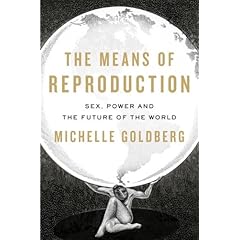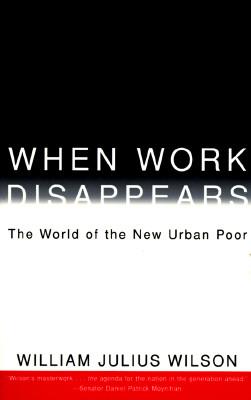 We’re pleased to bring you another cross-post from our friends at Feminist Review. In this week’s edition, Sarah Eve Nichols-Fulghum reviews Michelle Goldberg’s The Means of Reproduction. –Kristen
We’re pleased to bring you another cross-post from our friends at Feminist Review. In this week’s edition, Sarah Eve Nichols-Fulghum reviews Michelle Goldberg’s The Means of Reproduction. –Kristen
In The Means of Reproduction: Sex, Power, and the Future of the World, author and investigative journalist Michelle Goldberg uses her abilities to uncover the truth about the reproductive rights (and lack thereof) for women around the world. As we grow into a global community, the politics of sex, child bearing, and child rearing are monumental issues that are overlooked for the convenience of those in power. This book explores the reality of the situation, including many real life accounts of the struggles faced by women in countries that span four continents.
Chapter one begins with a heartbreaking tale of the first victim of an abortion ban in Nicaragua. The country deemed that abortion in any form was illegal. Jazmina Bojorge began suffering a miscarriage and due to fear of legal repercussions the doctors, against their better judgment, gave her medicine to stop the labor because helping her with the miscarriage—that is, terminating the pregnancy—would have been illegal. The delay in action caused her to die. If the doctors could have performed medical assistance in ways that are associated with abortions, it would have saved Jazmina’s life.
The book goes into great detail about the various issues that surround women’s rights and the laws and culture that repress them. Topics include contraception, pregnancy and childbirth, AIDS, female circumcision, abortion, sex-selective abortion, rape, and the role of women in society. The political stances of both the Left and the Right are dissected with suggestions of what should be done and how women can stand strong together to fight against the torment we collectively endure.
The Means of Reproduction is a hard hitting read. Goldberg opens the eyes of the reader to the unjust treatment of women due to reproduction. Feminist activists will be motivated to take stronger action after reading this book. Anyone else will be hit with the realization that they can no longer choose to be ignorant. The facts are stacked up, and it’s time to take action.
Review by Sarah Eve Nichols-Fulghum
(Crossposted at Feminist Review)

 Everyone should take a look at this
Everyone should take a look at this  I’m THRILLED to announce that my nationally touring (whohoo!) intergenerational panel, “Women, Girls, and Ladies” will be
I’m THRILLED to announce that my nationally touring (whohoo!) intergenerational panel, “Women, Girls, and Ladies” will be  Just wanted to remind everyone about the NCRW Making a Difference for Women Awards Dinner and the FREE Afternoon Program that day, too, called “An Immodest Proposal: Advancing a New Era of Social Justice.” Details below:
Just wanted to remind everyone about the NCRW Making a Difference for Women Awards Dinner and the FREE Afternoon Program that day, too, called “An Immodest Proposal: Advancing a New Era of Social Justice.” Details below: In his
In his  Courtesy of
Courtesy of  We’re extremely pleased to give you a guest post from Allison McCarthy, who is offering a unique addition to Girl with Pen with author discussions on recent books with a feminist twist. Allison is a freelance writer based in Maryland and a recent graduate of Goucher College. Her work has been published in The Baltimore Review, ColorsNW, Girlistic, JMWW, Scribble, Dark Sky, and The Write-Side Up. –Kristen
We’re extremely pleased to give you a guest post from Allison McCarthy, who is offering a unique addition to Girl with Pen with author discussions on recent books with a feminist twist. Allison is a freelance writer based in Maryland and a recent graduate of Goucher College. Her work has been published in The Baltimore Review, ColorsNW, Girlistic, JMWW, Scribble, Dark Sky, and The Write-Side Up. –Kristen A day late, but on behalf of the whole Girl with Pen community I wanted to wish a smashing, happy 40th to our founder and inspiration, Deborah Siegel. Deborah rocked some truly glamorous locks (see pic of us to the left) at a fabulous party that proved that women really can find common ground across generations– at least in having a good time drinking wine and eating chocolate cake. 🙂 Happy Birthday, Deborah!!!
A day late, but on behalf of the whole Girl with Pen community I wanted to wish a smashing, happy 40th to our founder and inspiration, Deborah Siegel. Deborah rocked some truly glamorous locks (see pic of us to the left) at a fabulous party that proved that women really can find common ground across generations– at least in having a good time drinking wine and eating chocolate cake. 🙂 Happy Birthday, Deborah!!! With the economic downturn and an $800 billion stimulus and recovery package going through the Hill, it’s no surprise that welfare, or
With the economic downturn and an $800 billion stimulus and recovery package going through the Hill, it’s no surprise that welfare, or 